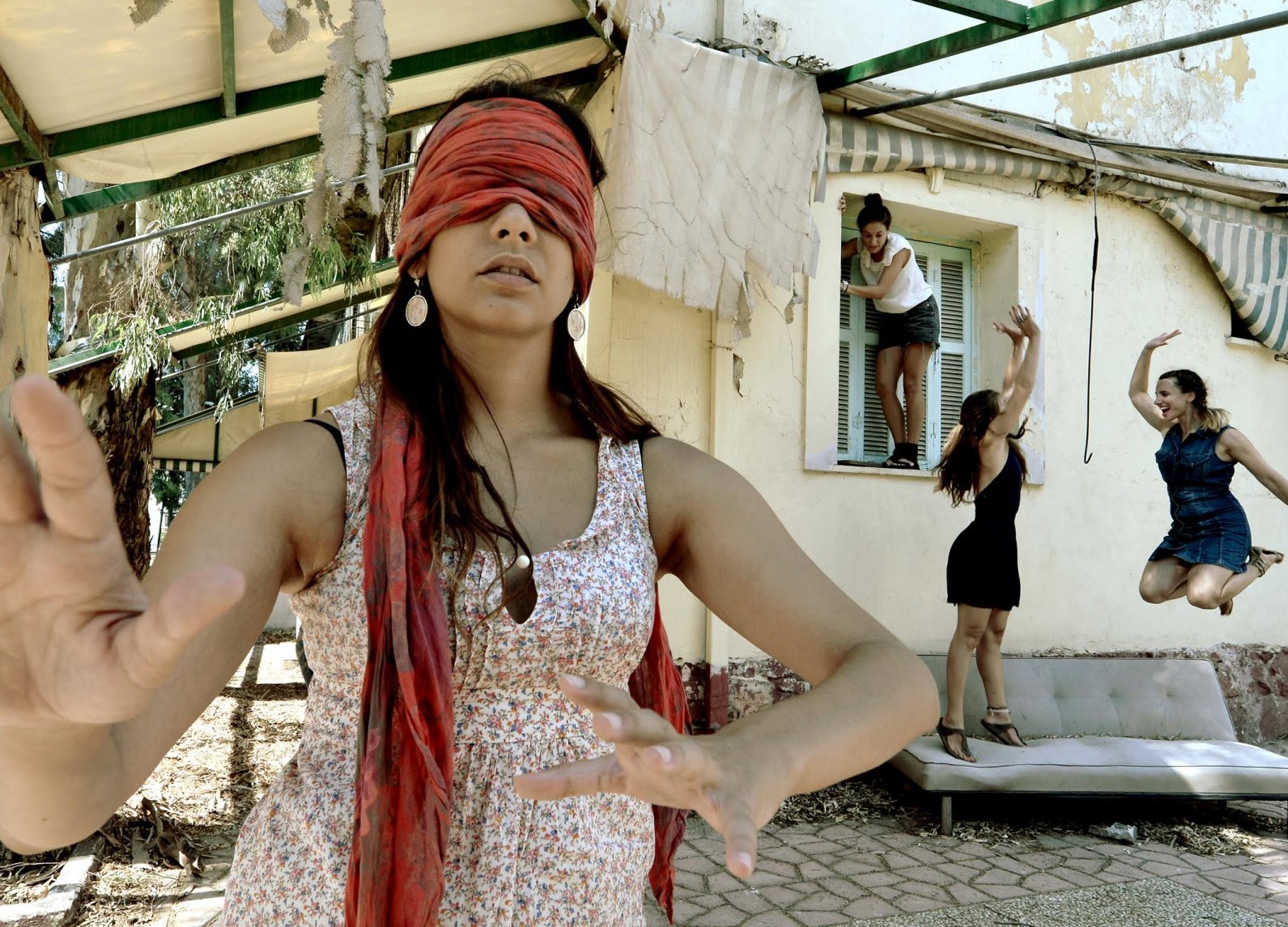
Rehearsal for the Dourgouti Island Hotel by Urban/Dig Project/Ohi Paizoume
Photo: Irina Vosgerau
Universal challenges in the arts
Having worked in the arts all over the world, Matina Magkou has observed some common challenges – and ways of overcoming them.
I have been working as a cultural manager and researcher for the past 15 years in Greece, Spain and Qatar, Latin America and Asia. I have observed the people I have worked with, and believe it or not, they all face similar challenges.
How to respond to budget cuts in an unstable economic environment is perhaps the number one struggle. Managing cultural organisations in a sustainable way is not straightforward these days and perhaps it never has been. What has changed is that we are facing the vulnerability of public investment, in parallel with a significant shrinking of private investment.
Intellectual is relevant to all artists and all producers, and knowing how to protect it is necessary, but we are rarely taught how to do it
Add to that the extent to which digitisation has affected the creative value chain, from conception to creation, the arts sector is faced with quite a new panorama. And this requires new approaches to the way we work.
Safeguarding intellectual property
How to protect intellectual property rights is a big question that many in the arts are asking.
It is a major challenge because copyright is rarely understood well by either artists or the production companies hiring them. Copyright is an immaterial, proprietary right, granting creators certain prerogatives with respect to how their work may or may not be used, as well as protecting their name and reputation. There are also economic and moral rights ‘integrated’ in copyright.
To respond to this challenge, you first need to look for information on copyright and neighboring rights. Copyright and neighboring rights systems exist virtually in every country, although they vary depending on a country’s legal traditions. The systems are also affected by the extent to which countries have become parties to and how they have implemented the various international treaties in the field, from the Universal Copyright Convention to the most recent 2012 WIPO Beijing Treaty on Audiovisual Performances, which finally acknowledges that all performances deserve intellectual property protection, regardless of the nature (audio or audiovisual) of their fixation.
Once you know what the national law provides, you will know your intellectual property rights as an author, performer or producer. But how are these, especially the economic rights, to be managed in practice? Authors’ and artists’ engagement contracts include provisions with respect to the rights that are given to the production. These must be in accordance with applicable laws and respect minimum terms set in collective bargaining agreements, wherever applicable.
A good place to start, before even signing any contract, is to get in touch with the trade union or producer representing you to find out what those basic requirements and entitlements are.
Intellectual property refers to creations of the mind. It is relevant to all artists and all producers, and knowing how to protect it is necessary, but we are rarely taught how to do it.
Creative business models
This new landscape has created a set of conditions that are pushing cultural operators to think outside the box and beyond the traditional norms, and to experiment with new and creative business models in order to plan their work in a more sustainable and secure way. Creative Business Models: Insights into the Business Models of Cultural Centers in Trans Europe Halles provides some examples of how cultural organisations have achieved this. They can be inspiring – or at least make you feel less alone.
Some of us might feel more prepared to respond to the current challenges and the unstable economic environment, but it is undeniable that more support and guidance need to be made available to improve business models and develop long-term strategic and innovation capacities.
Creative Lenses is currently working on this and developing a specific methodology to address business model innovation for arts and cultural organisations. To sell or not to sell?, an IETM publication, gives insights into the differences between business models in the cultural and creative sector and traditional businesses. You realise that each cultural organisation has a business model, even without being aware of it.
There are numerous challenges that artists and other creative arts professionals face every day. ‘Life-off stage’ is not always straightforward. Working in the arts sector might be difficult at times but giving up is not an option for most of us, whereas getting the right support and access to information is.
Matina Magkou is a cultural manager and researcher.
www.ietm.org/en
Matina is the author of Life-off stage – Survival guide for creative arts professionals.
Join the Discussion
You must be logged in to post a comment.